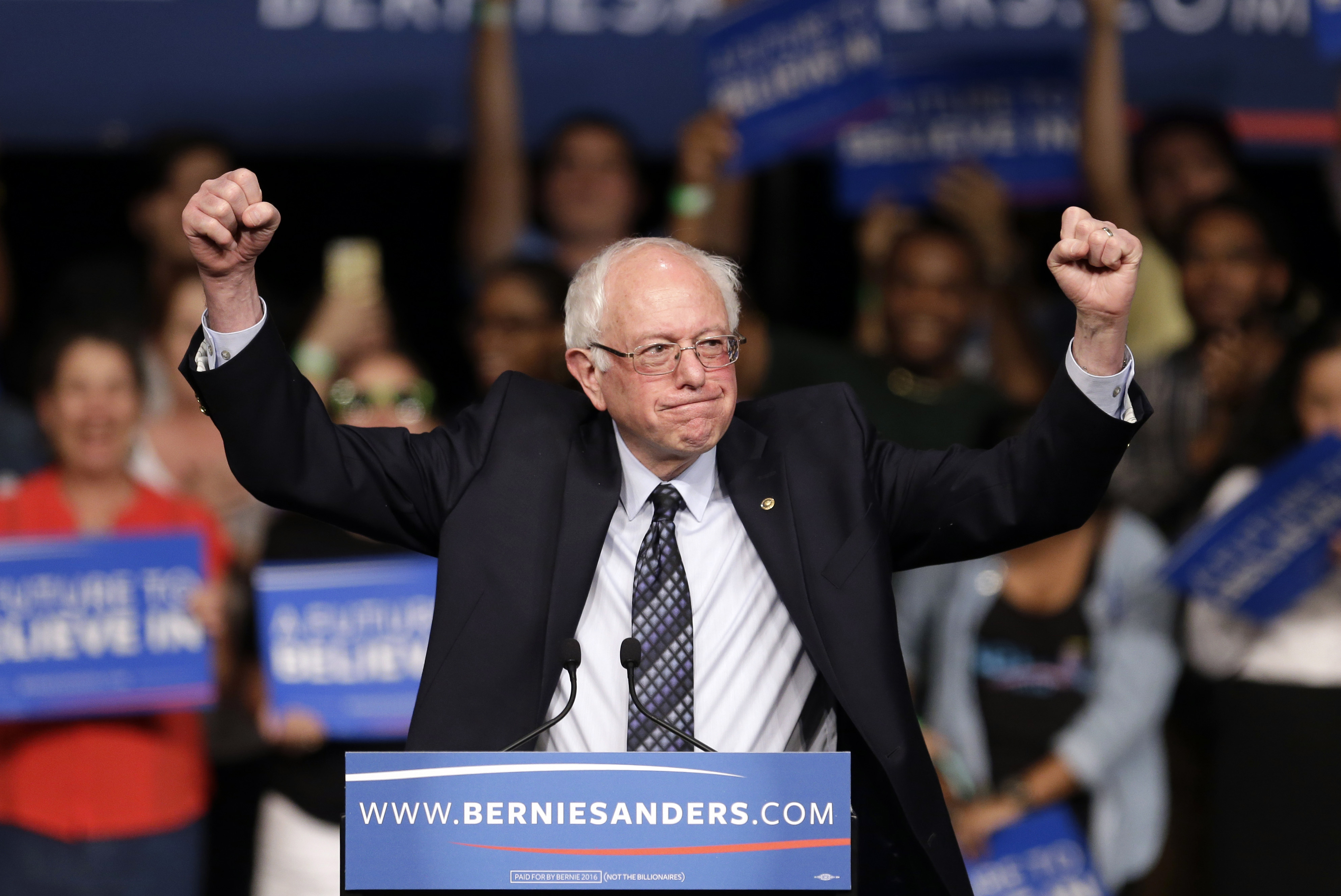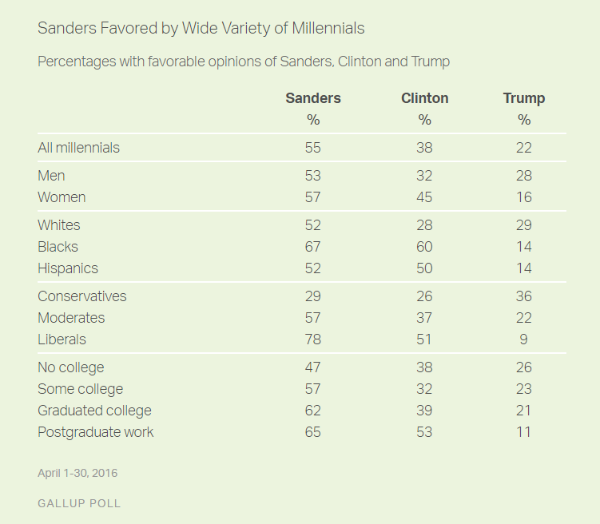Why Bernie Sanders is the most successful socialist in American history
Could it be that his ideas make a lot of sense?


A free daily email with the biggest news stories of the day – and the best features from TheWeek.com
You are now subscribed
Your newsletter sign-up was successful
Long before Bernie Sanders, there was Eugene Debs. He was a longtime socialist and union organizer, and five-time candidate for president. At his electoral high tide in 1912, he got nearly 6 percent of the presidential vote, by far the best any socialist has ever done in national politics. That is, until now.
Bernie Sanders, though he does not subscribe to the more traditional socialist views of Debs, still calls himself a socialist, and got within spitting distance of capturing the nomination of one of America's two parties. That is beyond question the electoral high water mark for an American socialist — at least for now. Why?
As people are continually rediscovering, Sanders gets most of his support from young people, across race and gender. Indeed, though a spectacular volume of punditry has focused on Sanders' lack of support among African-Americans, a recent Gallup survey found that black millennials (defined as being from age 20 to 36) give Sanders higher marks than whites or Latinos, at 67 percent approval. Hillary Clinton is not so popular, particularly among whites:
The Week
Escape your echo chamber. Get the facts behind the news, plus analysis from multiple perspectives.

Sign up for The Week's Free Newsletters
From our morning news briefing to a weekly Good News Newsletter, get the best of The Week delivered directly to your inbox.
From our morning news briefing to a weekly Good News Newsletter, get the best of The Week delivered directly to your inbox.

Sally Kohn suggests the following explanation for this discrepancy:
[W]hen you see progressive white men — many of whom enthusiastically supported Barack Obama's candidacy — hate Clinton with every fiber of their being despite the fact that she's a carbon copy of Obama's ideology (or in fact now running slightly to his left), it's hard to find any other explanation than sexism. [Time]
Sexism probably has something to do with the fact that Clinton's approval rating among male millennials is 13 points lower that it is among female ones (though it's still fairly striking that the likely first female president has only 45 percent approval among millennial women).
However, policy is also a huge reason.
A free daily email with the biggest news stories of the day – and the best features from TheWeek.com
I am right about in the middle of the millennial age group, and I was a strong Obama supporter in the 2008 primary. I distrusted Clinton back then for the same reason I do today: her long record of belligerent foreign policy views. It is simply false to say that Clinton is running as a slightly more left-wing version of Obama. She's fairly close on domestic policy, but has always been a firm advocate of military intervention, and panders to Israel and AIPAC to a ridiculous degree.
But the political context of this primary is also poles apart from 2008. Back then, a huge amount of attention centered on foreign policy. (Without Clinton's support of the Iraq War, she would undoubtedly be president today.) The growing economic crisis did get much notice, especially when the true financial crisis hit during the general election. But progressives — who had spent the 2000s fighting George W. Bush on Iraq, Katrina, tax cuts, corruption, and a hundred other things — did not have a fully developed economic vision at the time. It simply did not sink in fast enough that America was about to experience the worst economic crisis in 80 years — one that would expose the rot in the U.S. economy.
By and large, progressives trusted that the new president would sort things out. But instead, despite the fact that Democrats held huge majorities in both houses of Congress, the crisis was half-fixed at best. The economy staggered ahead in a quasi-depression for most of Obama's presidency, only gaining a bit of real steam in the last couple years. Republican victory in the 2010 midterms meant biting austerity and the loss of millions of government jobs.
In the meantime, left-wing critics developed a powerful case that the problems ran far, far deeper than Democrats failing to pass a large enough stimulus. Median wages had been stagnant for decades. The financial system had turned into a giant parasite. Unions were all but dead, especially in the private sector. Inequality, at spectacular highs before the crisis, continued to increase under Obama, with the top 1 percent vacuuming up virtually all income growth. For many college grads and dropouts, student debt had become a crippling burden.
The crummy American welfare state also came in for sharp leftist criticism. Unlike peer nations in Europe, America has no paid parental leave, no child allowance, and no paid vacation on the federal level. Its retirement programs are either insufficient or a colossal failure, and its unemployment and disability benefits are threadbare. Bill Clinton's welfare reform was conclusively proved to be a nightmarish disaster that increased extreme poverty by 150 percent. Even ObamaCare, while it is a big improvement on the status quo, has not remotely achieved universal health care coverage.
Obama himself was a sharp disappointment in many ways, from his failure to deal with the foreclosure crisis, to his perpetuation of much of the Bush security apparatus — particularly dragnet surveillance, as the Snowden revelations made clear.
In the 70s and 80s, the fading embers of the New Deal made these critiques seem weird or unnecessary, as did the red-hot economy of the late 90s. But today, it is obvious that America basically fails many of its citizens, and young people have been getting their faces ground into it for their entire political lives. That, I submit, is the basic reason that Bernie Sanders has done so well.
He's not perfect, but he is the only one with a platform that is remotely on the same scale as the problems Americans face.
Ryan Cooper is a national correspondent at TheWeek.com. His work has appeared in the Washington Monthly, The New Republic, and the Washington Post.
